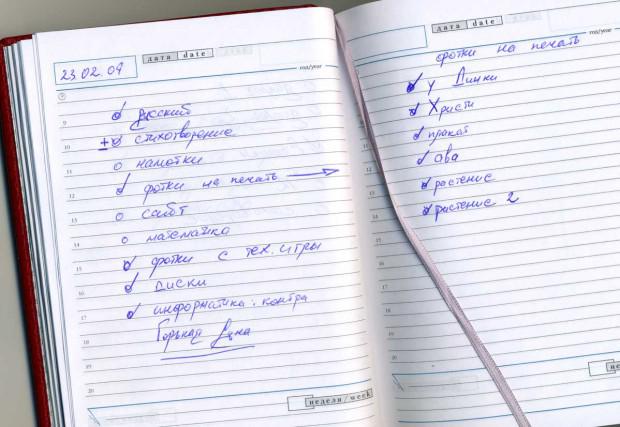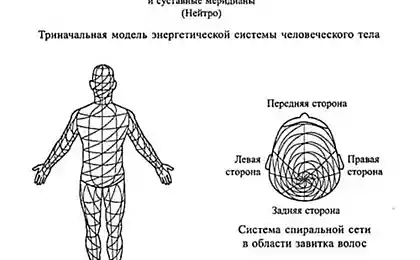725
How to be the most productive person in the office, leaving six
List of important things - evil. Schedule - our vsё

Eric Barker translated article for the magazine The Week.
blockquote> Some days do list seems bottomless. Are you tired already, even looking at him. We all want to know how to stop being lazy and do more. I also, of course, want to get an answer. So I decided to call a friend who manages to have time to do that and more. Cal Newport impresses me. Why is that? Well, I'm glad you asked. He is insanely productive:
- He is a professor of Georgetown University, teaches classes and consults students.
- He wrote six (or more) peer-reviewed academic journal articles per year.
- He is the author four books, including the bestseller «So Good They Can not Ignore». And working on the fifth.
- He is married with a young child and performs the duties of a husband and father.
- He writes a regular blog on productivity and personal effectiveness. ul > Yet he finishes work at six pm every day, and rarely works on weekends. No, Cal no superpowers or staff at 15 people. Okay, let's stop envying his performance and asked Cal something. So, here are a few secrets of high productivity:
1. Do List - evil. Schedule - vsё
Lists themselves are useless. They - only the first step in the work. Not to make a list - you need to find the time for all things. So - keep a schedule, and not just 'tude lists ».

Schedule once clearly show that you actually have time to do. Plus, it will help to accomplish the task effectively, and not just because it's paragraph 4. So far things are not placed on the calendar at certain hours, they are things that you would do well not have done during the working day.
Cal says, the schedule - is opposed to the reality, because it helps to understand how much time you have to perform tasks. Now that you have the full picture, you can do literally every hour of their work efficiently. Not only do you have time to time: you will force more and tidy desktop, experts agree that if you are a long time looking for things, initially setting yourself up for failure. Well, to-do list is sent to the trash, and the case is now marked on the calendar. How to prioritize so as not to run forever?
2. Install the hard granitsy
Suppose you are going to go home at six, then let's try to plan your day in the opposite direction.
The work will fill all the space allotted. Give it a day, 7 days a week and 24 hours a day, and how do you think will happen?
We need clear boundaries, if you want to balance work and life. Cal calls this method "performance rigid schedule." Create your ideal schedule, and then run from the back to make sure that everything is in place. You have to feel that everything is on schedule.
Anything that increases the feeling of control over the situation, no matter whether it increases with the self control or not, can help you reduce stress. In the absence of effective stress your brain focuses on solving current problems and evaluates the time.
Okay, you have assigned themselves the direction of movement, painted task, put them in the schedule, and it worked in the opposite direction. But how to deal with long-term projects?
3. Make a plan for all nedelyu
I think you will agree that the last thing he needs is our world - is short-term thinking. You will never be in the game, if you think only about today, without looking at tomorrow.
How to write a book, conducted classes at the university, written theses, brought up children? Plan your entire week. Cal says that often people do not look at the big picture and the time schedule. He knows his every day and every hour in the day. And so with each passing week, month.
You rolled his eyes? However, it sounds easier than you think. Why do it?
Every Monday one o'clock Cal spends what is the plan for the whole week. He compares it to his to-do list, calendar, mail box, trying to choose the best that can be done every day in the week. He wrote it himself to e-mail, because it knows that it will check several times a day and thus reminds himself about the current problems.
And he's right. Studies show that you are wasting your time more wisely, if you stick to the plan.
Maybe you think that it is enough simply to make a plan in his head. No, you should write down the case. What is written with a pen, do not cut down with an ax - studies show that in recording the brain relates to the more serious cases and remembers them better.
So you've got a fixed schedule and a weekly plan, but got too much to do, it's not time to. Cal has an answer to this.
4. Do menshe
- How many cases, I'm all for anything not to have time, no graphics will not help! - You think at this point (if you get to it). What to do?
Doing less - meets Cal - Ask yourself what is the true value of your life, and then liquidate the remaining parts of the maximum.

If you want to achieve greater success, it is better to do less, but better. People always say "yes" too many problems. Cal says "no" to almost all tasks. He ruthlessly expunged from the list of cases if they do not appear to him extremely valuable. You may feel a constant shortage of time, but John Robinson, a leading researcher in the field of time management, you do not agree: "The modern man much more time than had any of his ancestors." Robinson argues that the average working day, not just in the US but around the world, has been declining in the last forty years. We have all become more rest and not work.
However, this is not felt from the sea annoying tasks that suck the life out of you. So do less and admire what you are doing.
You brought your plans in order and are now doing less. But the question remains, what should you do with your time?
5. First of all - the vazhnoe
Cal says that workers of mental cases deal with two fundamentally different types of work, shallow and deep: "Small problem - it is, for example, e-mail, meetings," routine ". That actually does not use your talents. The big problem, on the contrary, break up your abilities to the limit. This gives significant results and improve skills. »
The most always busy often look very unproductive employees. This is because the real cause of their eternal employment - focus on "turnover". They respond to messages, perform small tasks, react to me in the office environment - and in fact, do not do anything meaningful.
No one in the history of the universe has not yet become general manager, because it responded to the increasing number of e-mails and meetings held.
Cal says: when the fine work you do not get fired, for the implementation of the major tasks - will increase.
Let's bind together.
Results: Cal gives you 5 tips:
- To-do list - evil. Schedule - everything.
- Suppose you are going to come home from work at six. Plan your day in the reverse order.
- Make a plan for the week.
- Focus on large-scale problems.
- Plans and schedules - it sounds cold and strict, but the result say for itself.
via factroom.ru






























